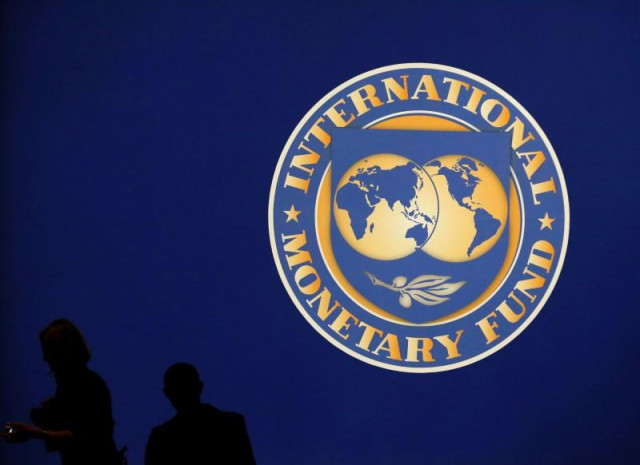Pakistan govt meets IMF's tariff, social safety conditions
Hikes power tariffs, makes one-off payments to over 5m BISP beneficiaries

Hikes power tariffs, makes one-off payments to over 5m BISP beneficiaries. PHOTO: REUTERS
Under the $6 billion Extended Fund Facility (EFF), Pakistan was required to notify second quarter increase in power tariffs and disburse Rs1,000 per person to Benazir Income Support Programme (BISP) beneficiaries before the end of August.
The requisite quarterly adjustment in power tariffs was done by the National Electric Power Regulatory Authority (Nepra) by the due date and the compensation of Rs1,000 was also paid to the BISP beneficiaries, said Omar Hamid Khan, Special Secretary and Spokesman for the Ministry of Finance in response to questions sent by The Express Tribune.
However, sources said the federal government had not notified any fresh increase in electricity tariffs and instead covered the second quarter increase under the previously notified tariffs.
As part of the IMF programme's prior actions, the Pakistan Tehreek-e-Insaf (PTI) government initiated automatic quarterly tariff adjustments with the first increase of Rs1.5 per unit to generate Rs189 billion in additional revenue with effect from July 1 this year.
Government sources said the second quarter adjustment in electricity prices was made along with the first quarter adjustment of Rs1.495 per unit. They said the increase of nearly 50 paisa per unit in the last notification was on account of second quarter adjustment.
However, it is yet to be seen whether the IMF will accept this interpretation of increase in tariffs in first review of the loan programme, which is tentatively scheduled for December this year.
The monitoring and assessment of Pakistan's performance under the EFF is conducted under a calendar of quarterly reviews and the first one is scheduled before December 2019, said Teresa Daban, IMF's Country Representative, when requested for comment.
"The IMF will issue a report after the conclusion of that review in coordination with the Pakistani authorities, for submission to the board of directors of the IMF, which is the final authority that decides if implementation is on track," she replied, when her views were sought on the 50-paisa tariff increase in the previous quarter.
In order to eliminate circular debt in the power sector and make it attractive for private sector investment, the IMF programme heavily relies on increase in electricity tariffs to eliminate the deficit and electricity subsidies.
The energy sector's circular debt stood at Rs1.7 trillion at the end of June 2019 and the government can only add up to Rs81 billion to the debt stock in the current fiscal year, showed the IMF staff-level report.
The IMF programme seeks to completely eliminate the circular debt by December next year.
Responding to a question, the finance ministry said the revenue impact of the increase in tariffs on account of quarterly adjustment would be shared once the data was received from the power distribution companies.
Under the IMF deal, Pakistan is also required to notify the electricity tariff schedule as determined by the regulator by the end of September 2019.
During the first review, the IMF will gauge Pakistan's performance in relation to net international reserves, net domestic assets, reduction in primary deficit, increase in tax revenues by the Federal Board of Revenue, status of external public debt and the privatisation programme.
IMF Director for Central Asia and Middle East Jihad Azhor is also starting his visit to Pakistan next week and he will hold meetings with parliamentarians, government officials and most likely Prime Minister Imran Khan.
BISP payments
The IMF programme has included conditions to enhance the social safety net coverage aimed at offsetting the impact of increase in electricity prices and general inflation fuelled by currency devaluation.
As part of the conditions, the government was required to ensure Rs1,000 one-off disbursement by the end of August to the existing BISP beneficiaries, standing at around 5.4 million.
The finance ministry spokesman said the requisite compensation of Rs1,000 had been paid to the BISP beneficiaries with a total impact of Rs5.08 billion on the budget.
The IMF has also included a quarterly ceiling to make sure that the government disburses Rs180 billion among the BISP beneficiaries during the current fiscal year 2019-20.
BISP is responsible for the implementation of social assistance programme through the conditional and unconditional cash transfer programmes, currently reaching over five million families.


















COMMENTS
Comments are moderated and generally will be posted if they are on-topic and not abusive.
For more information, please see our Comments FAQ